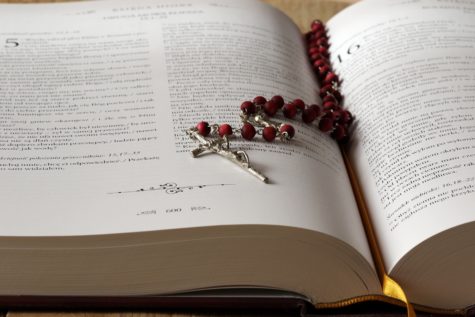WACO, Texas — Tradition holds that religion and politics are two topics best avoided in polite company. But researchers eager to understand how one informs the other embarked on a study some might call “rushing in where angels fear to tread.” As it turns out, they found that one’s perceptions about God can unwittingly cause them to appear more like those the other side of aisle.
According to the Baylor University study, some theological beliefs can actually move political parties closer together, making conservatives more “compassionate” and liberals “harsher.”
“Partisanship explains only so much. Images of God reveal deep moral perspectives that affect the ways in which Americans understand justice, so much so that they can blur the lines of partisan politics,” explains researcher and study co-author Robert Thomson, a postdoctoral research fellow at Rice University, in a release.
In a previous study, researchers determined that Republicans and Democrats who believe in a highly judgmental God find common ground in attitudes toward capital punishment and other forms of retributive justice.

“Liberals with a ‘strict father’ image of God are more inclined to support harsher criminal punishments and military solutions to foreign conflicts because they adhere to a theology of retribution and just deserts,” says co-author Paul Froese, a Baylor professor of sociology. “It appears that Americans who see God as wrathful are quicker to support policies which seek an eye-for-an-eye outcome.”
In this study, Froese and Thomson found another theologically based area of agreement. When Republicans see God as actively involved in the world, they are more likely to support the type of welfare policies that more closely align with the Democratic Party.
“Conservatives who feel close to God tend to go to church more, volunteer more, but are also more likely to want help from the government to take care of the poor,” argues Froese. “Republicans with a distant God tend be less compassionate.”
Researchers based their results on data from a 2007 cross-sectional survey of 1,588 individuals from across the country. Participants were 41 percent Republican, 37 percent Democrat and 22 percent Independent. Atheists were excluded because of the lack of a God image for comparison with other survey respondents.
When asked about wealth distribution and improved living standards for ethnic minorities, respondents were 50.3 percent in favor of redistribution of wealth and 49.6 percent in favor of a better standard of living for ethnic minorities.
Participants were asked how important it is for “good people” to bring about social and economic justice and to care for the sick and needy. On issues of social justice, 39.1 percent considered “seeking justice” to be a high priority, while 62 percent agreed that we have a responsibility to care for those who are sick and needy.
Respondents were questioned about the traits they believe God possesses: “distant, ever present, removed from the world, concerned with the world’s well-being, concerned with personal well-being, directly involved in worldly affairs and differently involved in personal affairs.” They were also asked to rate themselves on a four-point scale in terms of how religious they considered themselves to be and how often they attended religious services, anywhere from “never” to “several” times per week.
Researchers found a consistently more conservative approach toward both social justice and retributive justice with Republicans. Even though their party generally opposes wealth redistribution through such government efforts as taxation and welfare programs, some Republicans feel a need to assist in a personal, nongovernmental way.
The authors found that Republicans are more likely than Democrats to be affiliated with a church and to be actively involved. Because of this, they tend to donate time and money to charities more often than Americans who are more secular.
“Republicans with a deeply engaged God are consistently liberal on issues of social justice,” says Froese. “And Democrats with a highly judgmental God are consistently conservative on issues of retributive justice.”
It turns out that perceptions of God do impact partisan politics, sometimes blurring the lines between parties. Perhaps if more people saw God as both authoritative and compassionate, we could find that common ground that seems so elusive.
The study, “God, Party and the Poor: How Politics and Religion Interact to Affect Economic Justice Attitudes,” was published Jan. 30, 2018 in the journal Sociological Forum.
